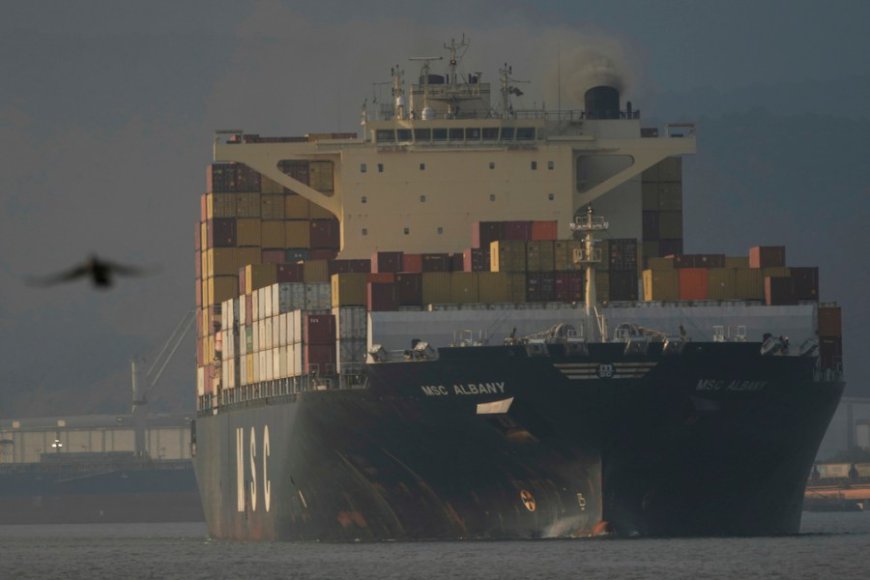Trump's new political tariff pageantry hits Brazil — and American consumers
Donald Trump's recent tariff on Brazil is a political gesture aimed at supporting former Brazilian President Jair Bolsonaro's cause, despite Brazil's large trade surplus with the United States and the costs that will be borne by American consumers and exporters.

President Trump once claimed tariffs were about restoring reciprocity. Now he uses them like balloons in a post-truth populist pageant, slapping a 50 percent levy on Brazil not because of of trade imbalances, but due to former Brazilian President Jair Bolsonaro's legal troubles.
Trump's latest tariff gesture is political grievance diplomacy, not economic policy.
If Trump believes Brazil's prosecution of Bolsonaro for alleged involvement in a failed coup is illegitimate, he should advocate or impose sanctions. Instead, he imposes a tariff that hurts U.S. consumers and exporters, even though the U.S. ran a $7.4 billion trade surplus with Brazil in 2024.
In his public letter, Trump lashed out at Brazil's government for prosecuting Bolsonaro, calling the charges an "international disgrace." He declared his tariff a protest against Brazil's alleged "attacks on free elections" — by which he meant the regulation of American tech platforms that hosted far-right content during Brazil's election crisis.
It is a growing challenge to apply “economic” to these post-truth “reciprocal” tariffs. But it's becoming scarily easy to recognize Trump's need for emotional spectacle, calibrated for a base that responds to punitive gestures, not policy results.
This represents a complete departure from how America has traditionally used tariffs. The Smoot-Hawley Act of 1930 was at least coherent in its wrongheadedness. It aimed to protect American industry. It failed spectacularly, deepening the economic crisis and provoking global retaliation, but it was still economic policy.
Trump's Brazil tariff serves no economic purpose whatsoever. The U.S. exported nearly $50 billion in goods to Brazil last year — far more than it imported from Brazil. Yet the price of this performative tariff will be paid by American consumers and exporters, not by Bolsonaro or Brazilian President Luiz Inácio Lula da Silva.
Brazil is America's 16th largest trading partner. Disruptions will ripple through agriculture, aerospace, energy and manufacturing. America is the largest consumer of Brazilian goods. But in the MAGA carnival, the audience cheers loudest when the strongman throws a punch — even when it lands on their own wallet.
Bolsonaro, now banned from running for office until 2030, told the Wall Street Journal he was counting on Trump to use American economic leverage to punish Brazil and help stage his return. That fantasy is now partially fulfilled. Trump has taken up Bolsonaro's cause by endangering a U.S. trade surplus.
Meanwhile, Trump's administration prepares a Section 301 investigation to justify additional tariffs on Brazil, citing "unfair" practices in a country where American exporters are thriving. The outcome is predetermined: more chaos, more costs, more applause from those conditioned to see mere belligerence as strength.
Trump reframes personal grievance as national interest, then weaponizes policy tools for symbolic retaliation. The fact that the 50 percent tariff will likely raise prices, provoke retaliation, and destabilize a beneficial trade relationship does not register as a problem. It registers instead as a demonstration of will, which is the very heart of populism.
There was a time when American trade policy served actual economic purposes. Even President Richard Nixon's misguided wage and price controls in 1971 were at least attempts to address genuine economic problems. What we have now is a tariff imposed in defense of an alleged coup sympathizer, levied against a country with which we have a healthy surplus, paid for by Americans who may not realize the costs until they appear in grocery aisles.
When post-truth populist pageantry becomes policy, everyone pays the price, whether or not they care to watch and enjoy the spectacle.
Stephen Schneider studied philosophy and earned an M.D. before turning to finance and investing. He is particularly interested in how political culture shapes the U.S. financial system.
What's Your Reaction?




















